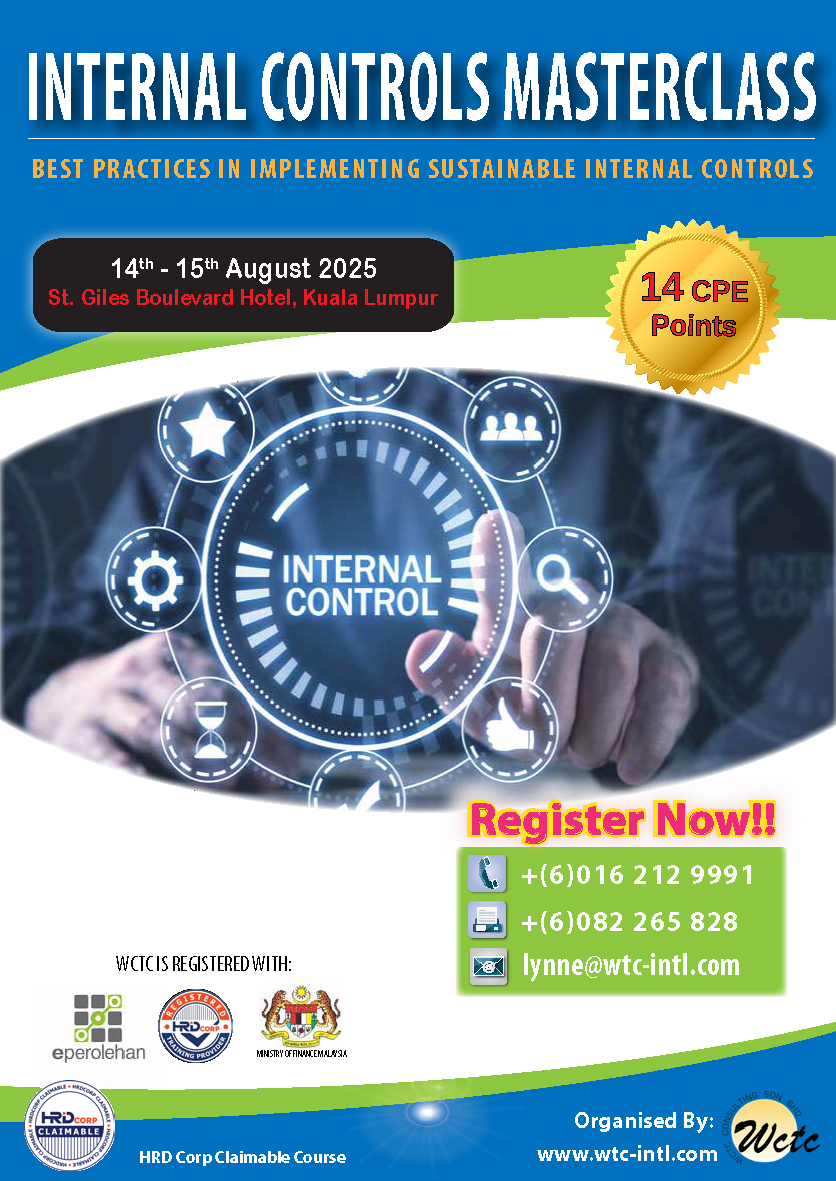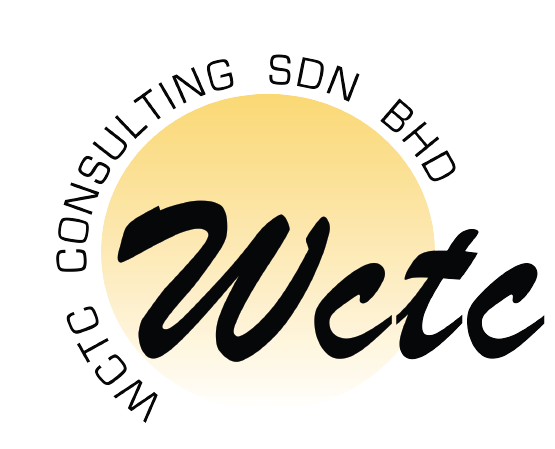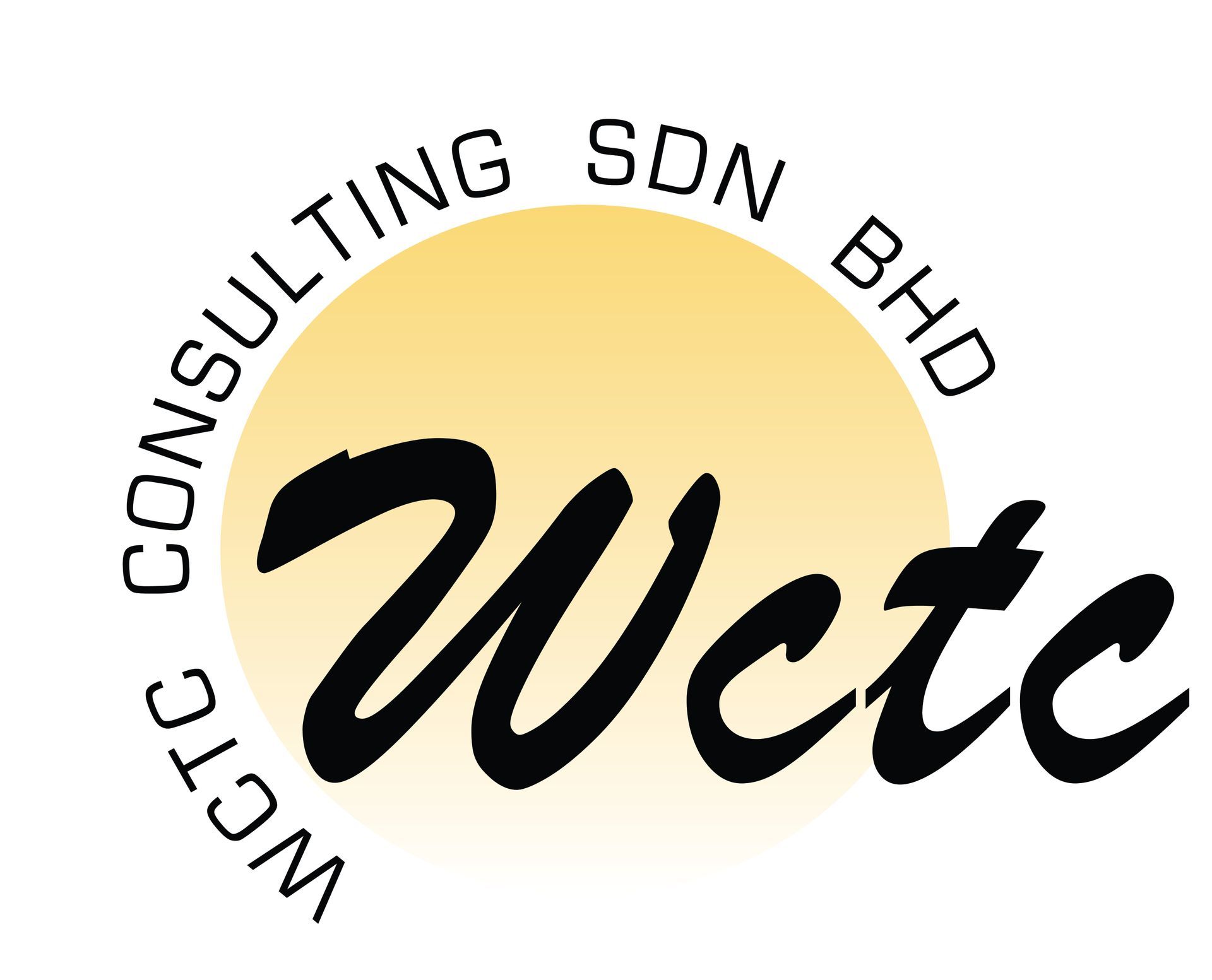Internal Controls Masterclass (14 - 15 August 2025) St. Giles Boulevard Hotel, Kuala Lumpur
OVERVIEW
In recent years, the issue of “internal control” has become more significant within organisation. How to strengthen your internal control system? A strong internal control system is one of the best mitigation strategies for managing internal operational and financial risks. Effective internal controls can assist an organisation to protect itself against misuse, loss of its assets and also manage its assets in a more effective and efficient manner. Additionally, putting the right effective internal controls in place can help alert management to potential problems, reducing the probability of unnecessary financial loss due to operational or regulatory non-compliance issues.
This workshop aims to convince you of the importance of effective internal controls for financial, operational and compliance reasons with a practical focus to enable you to apply effective control practices at your workplace.
Attending this 2-day instructor-led training programme will equip you with relevant risks and controls knowledge to enable you to identify control weaknesses, as well as implement effective control activities for the common core business processes (namely procurement, payment, revenue, receipts, inventory and fixed asset management) found in a typical organisation. You will also learn to develop your own Internal Controls Checklists to evaluate internal control practices currently implemented in your organisation.
LEARNING OBJECTIVES
- INTERPRET Fundamental And Important Internal Controls
- IDENTIFY The Importance And Limitations Of Internal Controls
- EVALUATE The Objectives Of Implementing Internal Controls
- DISPLAY Internal Controls Within Existing Processes To Mitigate And Detect Fraud And Errors
- EXPLAIN The Design And Operating Effectiveness Of Existing Internal Control Practices
- IDENTIFY The Five (5) Components Of Internal Control
- DISCOVER The Components Of An Effective Control Environment
- LEARN About The Ten (10) Most Commonly Implemented Control Activities To Manage Potential Operational And Financial Risks
- ASCERTAIN The Significance Of Information & Communication And Monitoring Controls
- IDENTIFY The Key Risks Areas Of The Procurement, Payment, Revenue, Receipts, Inventory And Fixed Assets Management Processes
- DETERMINE The Control Objectives Pertaining To The Relevant Sub-Processes
- IMPLEMENT Effective Key Control Activities For Each Of The Aforesaid Business Processes And Sub-Processes
- LEARN To Develop Your Own Internal Controls Checklists To Evaluate Existing Internal Controls With Provided Templates

Other Workshops:

ABOUT THE PROGRAM When performance isn’t managed properly, organizations end up paying for it in silence: people are unsure of what “success” even looks like, goals are set randomly, evaluations feel inconsistent, and teams start dragging under the weight of unclear expectations . Managers avoid tough conversations, reviews get reduced to a quick number or percentage, and small problems grow into full-blown performance issues that could’ve been fixed early. Without a clear, structured framework, both HR and managers struggle to maintain fairness, alignment, and accountability. Time gets wasted. Talented people lose motivation. Underperformance slips through the cracks. And the organization misses chance after chance to strengthen its talent pipeline. This two-day program equips Managers and Team Leaders with practical, usable tools to set meaningful KPIs, align them with organizational objectives, identify Key Result Areas, and understand the core components of a proper Performance Management System. Participants will learn how to create clarity, maintain consistent standards, and drive performance conversations that actually lead to improvement rather than confusion. The goal is simple: turn performance management into a disciplined, repeatable process that supports employee growth and organizational results; not a once-a-year form-filling ritual. JOIN US to build a performance culture where clarity is the norm, accountability is shared, and every review becomes a genuine driver of progress and growth.



